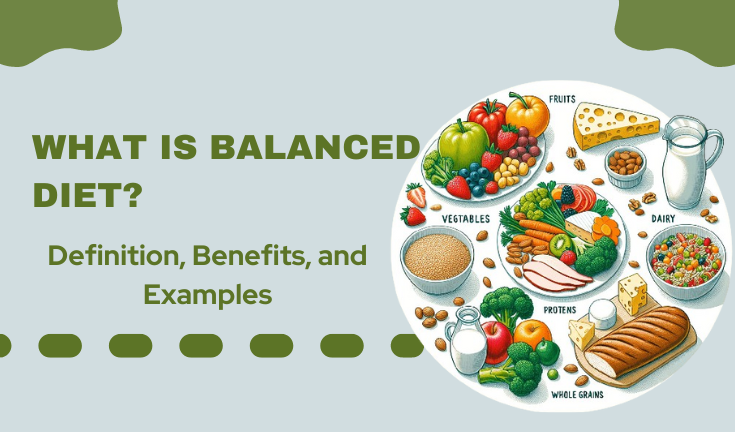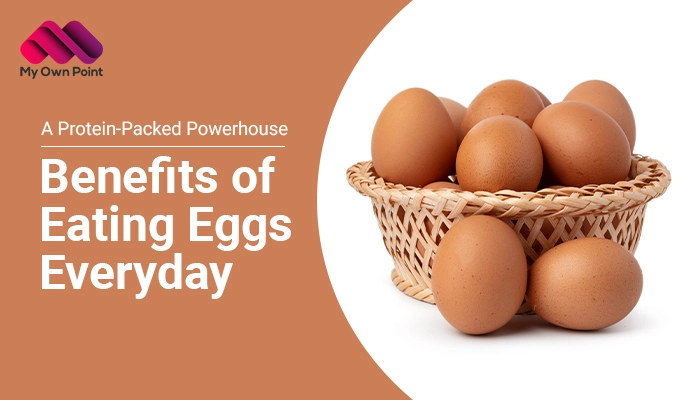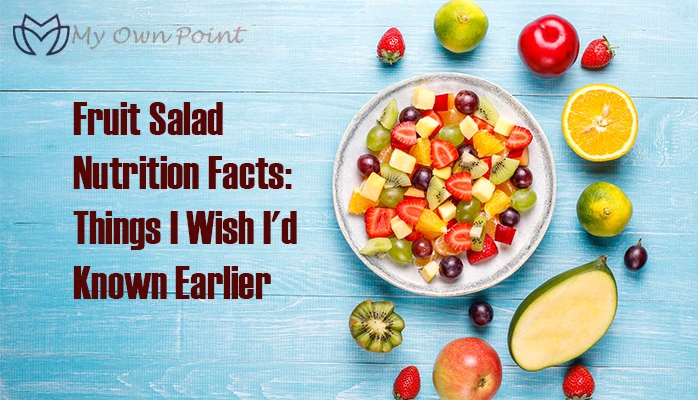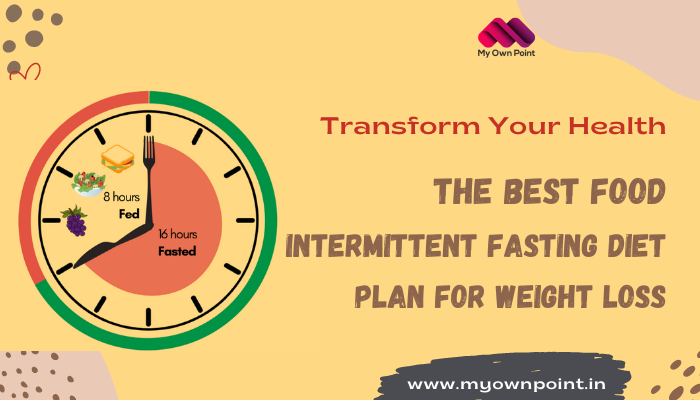What is Balanced Diet?
A balanced diet is important for good health and well-being. It means eating different foods in the right amounts to get all the nutrients your body needs to work well. A balanced diet gives the body important nutrients such as carbohydrates, proteins, fats, vitamins, minerals, and fibre. It is vital to maintain energy, support growth, boost immunity, and prevent chronic diseases.
Here, you will understand what a balanced diet is and why it matters, and give practical examples of how to achieve it, including a food list and a sample chart.
Also Read: Transform Your Health: Intermittent Fasting Diet Plan for Weight Loss
Balanced Diet Components
A balanced diet consists of a mix of different food groups in the right amounts to meet your body’s nutritional needs. It includes:
- Carbohydrates: Provide energy including whole grains like brown rice and whole wheat bread.
- Proteins: Essential for growth and repair such as lean meats like chicken, fish, and plant-based proteins like beans and tofu.
- Fats: Healthy fats are Necessary for brain health and energy which is found in avocados, nuts, and olive oil.
- Vitamins and Minerals: Fruits and vegetables are important for many body functions. Spinach, carrots, and berries are high in these nutrients.
- Water: Essential for hydration and overall health.
Example of a Balanced Meal:
- Breakfast: Oatmeal with berries and a glass of low-fat milk.
- Lunch: Grilled chicken salad with a variety of vegetables and a side of quinoa.
- Dinner: Baked salmon with a side of steamed broccoli and sweet potato.
- Snack: A handful of nuts or a piece of fruit.
Also Read: Pilates vs. Yoga: Which is More Effective for Weight Loss?
Importance of Balanced Diet
A balanced diet plays a vital role in maintaining health and preventing diseases. Here are some key benefits:
- Provides Essential Nutrients: A balanced meal gives your body the vitamins, minerals, proteins, and nutrients it needs to work well.
- Supports Growth and Development: It is very important for children and teens because it helps them grow and develop healthily.
- Boosts Immune System: Good nutrition boosts the immune system, helping it fight infections and diseases better.
- Enhances Mental Health: Balanced nutrition supports cognitive function and can improve mood and mental well-being.
- Maintains Healthy Weight: Helps control body weight by giving the right nutrients and stopping too many calories.
- Promotes Digestive Health: Fruits, vegetables, and whole grains are high in fiber. This helps digestion and prevents constipation.
- Reduces Risk of Chronic Diseases: It reduce the risk of heart disease, diabetes, and some cancers.
- Increases Energy Levels: Good nutrition gives you steady energy all day, boosting your productivity and health.
- Supports Healthy Skin and Hair: Essential nutrients help keep skin, hair, and nails healthy.
- Aids Muscle Recovery: Protein and other nutrients help muscles grow and repair, which is important for athletes and active people.
Also Read: How to Use Chia Seeds for Weight Loss?
Balanced Diet Food List
To achieve a balanced diet, include a variety of these foods in your daily meals:
- Whole Grains: Brown rice, quinoa, and oats are good sources of complex carbohydrates. They give you lasting energy and are high in fibre, which helps with digestion and supports a healthy weight.
- Lean Proteins:Chicken breast, fish, tofu, and beans are important for building and repairing muscles. Proteins help make enzymes and hormones and keep the immune system healthy.
- Fruits: Consuming fruits like apples, bananas, berries, and oranges gives you important vitamins and minerals, such as Vitamin C and potassium. These nutrients help your immune system, skin, and overall health.
- Vegetables: Vegetables like spinach, broccoli, carrots, and bell peppers are full of vitamins, minerals, and fibre. They support digestion, keep skin healthy, and lower the risk of chronic diseases.
- Healthy Fats: Eating foods like avocados, nuts (almonds, walnuts), seeds (chia, flax), and olive oil gives you important fatty acids. These fatty acids help your brain, lower inflammation, and help your body absorb vitamins that dissolve in fat.
- Dairy or Dairy Alternatives: Low-fat milk, yoghurt, and fortified plant-based milk like soy and almond provide calcium, protein, and Vitamin D. These nutrients are essential for strong bones and good health.
- Legumes: Lentils, chickpeas, and black beans are great sources of plant protein and fibre. They help keep muscles healthy, aid digestion, and control blood sugar levels.
- Fish and Seafood: Eating fish like salmon, mackerel, and sardines gives you omega-3 fatty acids. These fats are good for your heart and brain and help reduce inflammation.
- Nuts and Seeds: Almonds, chia seeds, and flaxseeds are packed with nutrients. They offer healthy fats, protein, and important minerals. These foods support heart health, lower inflammation, and add variety to your meals.
- Herbs and Spices: Adding herbs and spices like turmeric, ginger, garlic, and cinnamon makes your meals taste better and provides health benefits. They can help reduce inflammation and act as antioxidants.
Also Read: High-Fiber Foods For Weight Loss – You Should Eat Regularly
Balanced Diet Chart
A balanced diet plan chart helps plan your meals to ensure you get all necessary nutrients. Here’s a sample chart for daily intake:
| Food Group | Daily Servings | Examples |
| Grains | 6-8 servings | Whole wheat bread, brown rice, oats |
| Vegetables | 3-5 servings | Spinach, carrots, bell peppers |
| Fruits | 2-4 servings | Apples, bananas, berries |
| Dairy | 2-3 servings | Milk, yogurt, cheese |
| Protein | 2-3 servings | Chicken, tofu, beans, fish |
| Fats | 2-3 servings | Olive oil, avocados, nuts |
| Water | 8 glasses | Plain water, herbal teas |
Note: Adjust portion sizes based on individual needs, age, gender, and activity level.
Conclusion
As you read above, why is a balanced diet important for good health and preventing diseases? Using a given diet chart and including a variety of foods can support your health and well-being. Remember to enjoy different foods in moderation and pay attention to what your body needs to stay healthy and energized.
Also Read: 10 Best Sunscreens for Oily Skin Dermatologist Recommended In India




